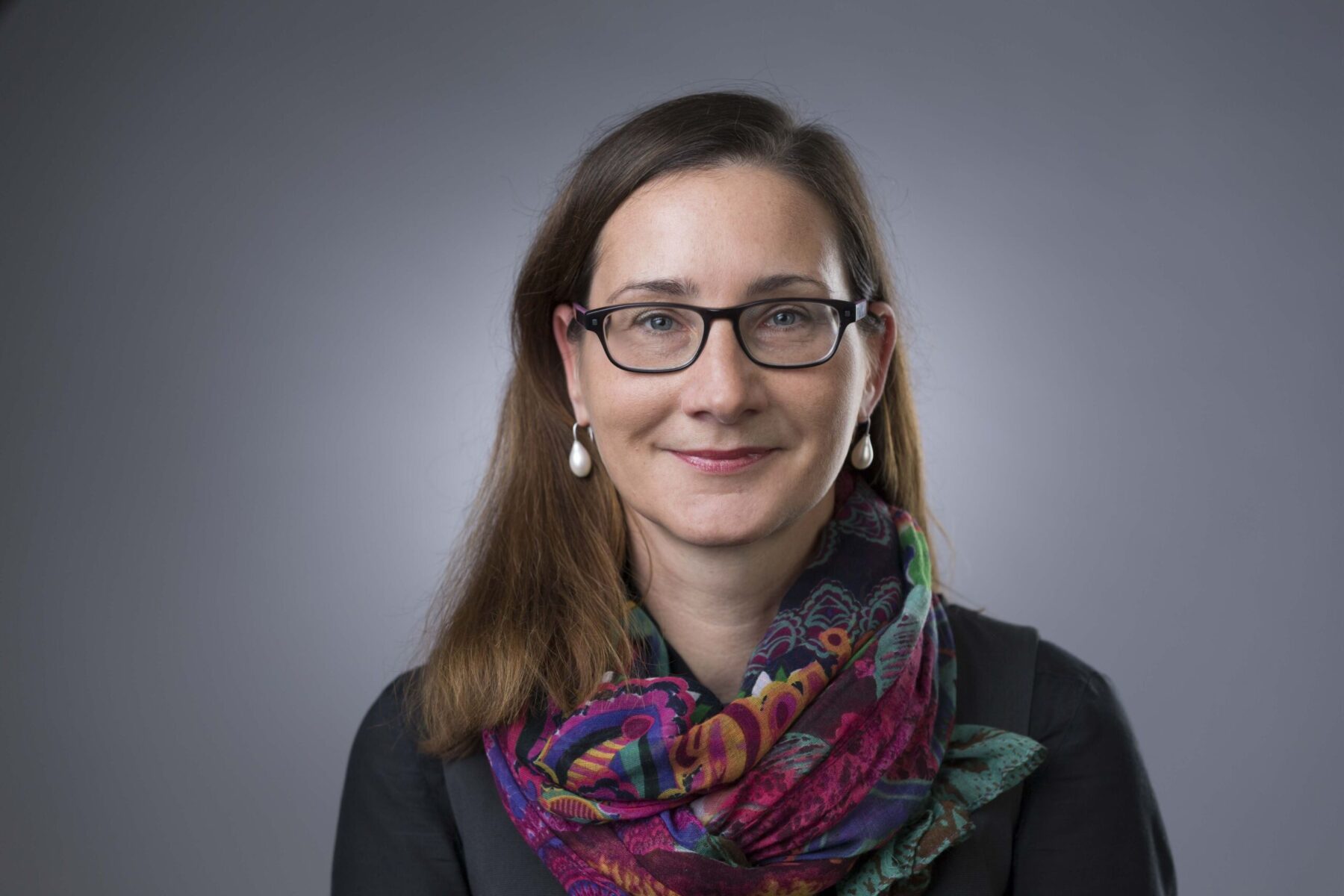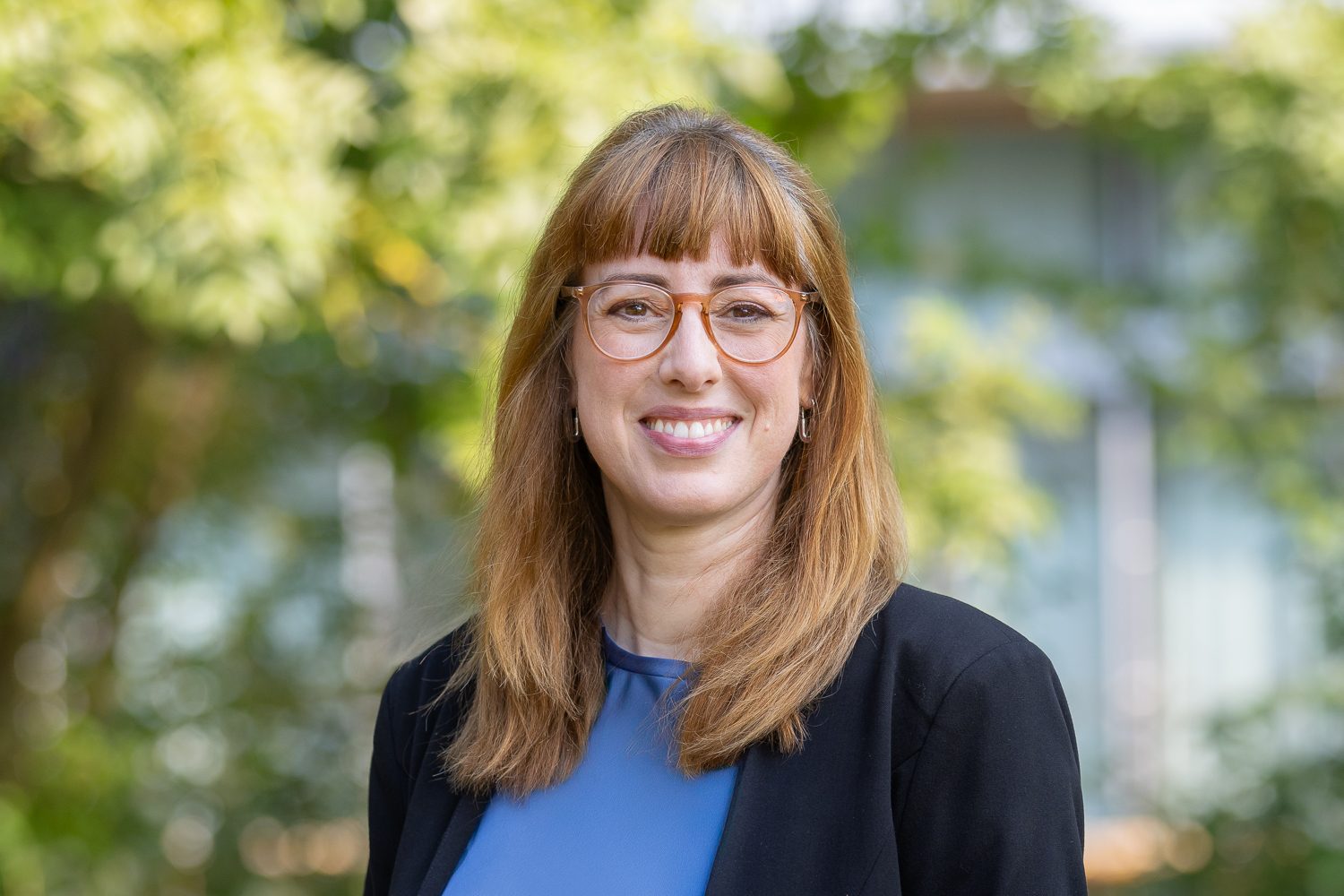
A University School in Potsdam-Golm: A significant step toward education equality – Prof. Dr. Nadine Spörer
At the University of Potsdam, innovation and new ideas are not foreign words. So, it is only logical that at the Golm Campus the first Brandenburg University School is currently being designed in the “Innovative Hochschule Potsdam” (in English: innovative university Potsdam) project. But what is a university school? Why is Potsdam-Golm the right place? What could this school bring to the Berlin-Brandenburg region? We spoke with Prof. Dr. Nadine Spörer, Professor of Psychological Primary School Pedagogy at the University of Potsdam, to better understand the plans and thoughts behind a future university school. As the head of the “Innovative University of Applied Sciences Potsdam” project, she explained to us details of the planning as well as the motives for this new school.
The model provides for a combination of the latest scientific findings with pedagogical teaching practices and school curricula. “Within this concept there is a very close institutionalized cooperation between the school and the university,” says Nadine Spörer. While some existing university schools see themselves as training schools and test new kinds of links between theoretical and practical phases of teacher training, others focus on the application and scientific monitoring of innovative pedagogical concepts.
The future university school in Potsdam-Golm sees itself as a teaching and learning institution with a focus on knowledge transfer. “The university school would be an important step for the Bildungsland Brandenburg, because here new pedagogical concepts could be directly implemented and scientifically supported. The transfer idea is part of the DNA of a university school, so to speak, because the structures and processes in which the exchange between university and school can best succeed are considered from the very beginning. If, for example, we manage to implement concepts that reduce educational inequalities, this will ultimately have positive effects on the Berlin-Brandenburg region,” predicts Prof. Spörer.
Bringing grand visions to life
Work on the framework concept to bring the university school to life was officially launched in early 2020. In various working groups, researchers, teachers and students regularly exchange ideas on how the basic ideas can be implemented. “In pedagogy, the dream of a school that promotes inclusion, heterogeneity and differentiated learning has long existed. As a public school, the new university school should in principle be open to everyone, from the first to the 13th grade.
We have to make sure,” says Nadine Spörer, “that children from all social classes have the same opportunities for the best possible education. One of the goals must be to bring children from different family backgrounds together and let them learn together in one school – so that they also learn from each other,” she says. Many cities are socially segregated. The unequal distribution of different population groups – such as wealthy and disadvantaged families – among individual districts has consequences for learning at a school, said Spörer.
The university school should not only enable joint learning, but also support each child according to his or her individual abilities. To this end, there should be different learning rooms in which the children can spend time with different learning elements at their own discretion. Convertible rooms, studios and workshops are to make teaching flexible and can be used for courses beyond school lessons. The concept provides space for new teaching and learning practices to give each child the chance to develop according to their own needs and abilities.
The school should be at the centre of the community here and therefore involve many different people and aspects of life. For example, the craftsman from next door or the cook from the canteen could become part of the learning project so that the pupils could also learn from them. “Here, school becomes a meeting place for children and parents, for people from the city, scientific institutions and the university,” says Katrin Völkner, who is active in the project as an expert for knowledge transfer in education. “In addition to classic teaching methods, there will be plenty of room in the university school for discussion rounds, learning groups and independent project work. And in order to create optimal learning conditions for each child, the teachers will work closely with psychologists as well as social and remedial educators,” she explains.
Potsdam-Golm: where innovation continues to grow
The University of Potsdam is the only teacher training college in the state of Brandenburg. When the university school becomes a reality, students can accompany the pupils in class during their studies and thus follow their academic development. ” Linking everyday school life at the university school with everyday study life at the university could be a good way to further increase the attractiveness of education,” says Nadine Spörer. “But this will only work well in the long term if there is physical proximity. That’s why our primary goal is to bring the university school to Golm.”
The natural and human sciences departments offer a perfect environment. Located on the Golm campus of the University of Potsdam, students would have direct access to university facilities such as the library, the music institute and the observatory. And not only that, the non-university research institutes of the Fraunhofer and Max Planck Society in the Potsdam Science Park are close by, which makes possible partnerships and joint activities attractive and practical.
The future of the University School
The pandemic has not yet had a negative impact on the project. Using digital tools, the discussion-friendly concept team was able to continue its communication in a surprisingly uncomplicated way. However, this also made clear the relevance of digital working methods in schools. The University of Potsdam sees itself as a pioneer for media-compatible teaching practices, which should be given high priority at university schools. “Anyone going to school today must be able to move confidently back and forth between analogue and digital worlds. This is why new cultural techniques are taught alongside classical teaching content,” says Katrin Völkner.
The concept for the new school should be ready by the end of 2020 and presented to those responsible in the political and administrative sectors. Since it is to be a public school, the team is in close contact with the state capital Potsdam as well as the Ministry of Education and the Ministry of Science of the State of Brandenburg. The public interest is considerable. “We are the think tank for the schools in the region,” says Nadine Spörer. “At the same time, we need the wealth of experience from school practice, suggestions from business and politics, advice from parents and, of course, the students’ ideas.”
This blog is funded by the European Regional Development Fund (ERDF) and the State of Brandenburg.
Photo: Prof. Dr. Nadine Spörer © Universität Potsdam
Contact

Karen Esser
PR & Communications
karen.esser@potsdam-sciencepark.de + 49 331 237 351 103